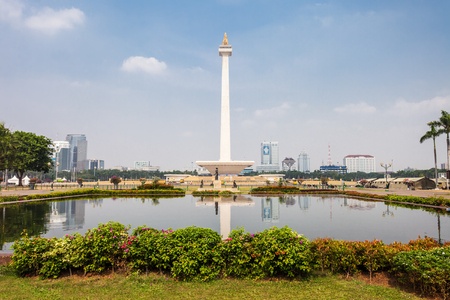7 November, 2017
Earlier this year, Indonesia passed Construction Services Law No 2 of 2017 (CSL), the first major development in Indonesian national construction law in over 17 years. We summarise below the main features of the CSL.
Foreign companies operating in Indonesia will need to ensure that all contracts entered into after 12 January 2017 comply with the new requirements. In particular, the CSL mandates a range of clauses to be included in construction contracts and imposes new licensing requirements on foreign companies and workers.
The CSL has been implemented under the Indonesian government's nine Priorities Agenda (Nawacita), with the aim of improving national development, productivity and competition. Several provisions aim to enhance the participation of construction business practitioners in the Indonesian economy, including provisions relating to the allocation of authority between central and regional governments, new dispute resolution mechanisms and the removal of certain previous criminal sanctions.
Which changes should you be aware of?
Several changes significantly affect contracts for onshore construction work, including:
Regulation of construction services: the CSL provides greater certainty regarding the regulation of construction services in Indonesia, specifying the following forms: construction consultancy, construction work, and integrated construction business.
Tender requirements: previously, all construction projects were required to be tendered. Now, the obligation to tender applies to projects funded by the state budget, and to affiliated contractors for public interest projects (kepentingan umum).
Foreign construction services business entity: a foreign entity may now only engage in construction services in Indonesia as either:
- a representative office (Badan Usaha Jasa Konstruksi Asing, "BUJKA"); or
- an Indonesian legal entity as a joint venture with an Indonesian construction company.
Representative Offices
Establishing a representative office involves cooperation with a national construction company. Representative offices are required to:
- obtain licensing to undertake construction work in Indonesia
- appoint an Indonesian citizen as the head representative
- employ more Indonesian workers than foreign workers
- prioritise the use of local materials and technology
- obtain licensing to undertake construction work in Indonesia
- appoint an Indonesian citizen as the head representative
- employ more Indonesian workers than foreign workers
- prioritise the use of local materials and technology
Joint Ventures
Operating as a legal entity involves establishing a company under the laws of the Republic of Indonesia as a joint venture with a national construction company. Foreign ownership in a joint venture construction company must not exceed 67%.
Specific Contract Requirements
Mandatory provisions in construction contracts: the CSL mandates a range of clauses to be included in construction work contracts, including protection for third parties, liability and risk provisions, procedures for dispute resolution, termination provisions, and obligations regarding transfer of technology to be incorporated in agreements with foreign parties. These clauses are also mandated for construction work contracts between contractors and subcontractors.
Governing language: previously, clauses of an English language contract could prevail in the event of any discrepancy between it and the Bahasa Indonesian version. Under the CSL, if a foreign party is involved, the works contract must be drafted in dual languages. In the event of a dispute with a foreign party, the Bahasa Indonesian language version will prevail.
Mandatory use of Rupiah: prices quoted and payment under a contract must be denominated in Rupiah for any construction project conducted within Indonesia.
Subcontractors: main work, defined as work with the highest risk of causing delay to the completion of a construction project, can only be given to specialised contractors approved by the employer. Supporting work, which encompasses any work other than the main work, can only be undertaken by small-scale subcontractors. The CSL carries administrative sanctions in the form of written warnings, administrative fines, and license suspensions for breach of these conditions by building contractors.
Employees and foreign workers: the CSL sets out more detailed requirements for employees undertaking construction work, who are grouped as being either operators, technicians, analysts or experts. Employees working in construction services must obtain and register the following certifications with the Minister of Public Works and Public Housing (MOPWH):
- a work Competence Certificate (Sertifikat Kompetensi Kerja); and
- a professional Experience Certificate (Tanda Daftar Pengalaman Professional)
CSL requires employers to obtain a license before employing foreign construction workers, who are limited to holding certain positions within construction companies. While foreign workers may be employed as commissioners, directors and managers, expert positions require foreign workers to obtain an additional registration certificate from the MOPWH (surat tanda registrasi)
Dispute resolution: The CSL provides new mechanisms for settling disputes that arise out of construction contracts. Parties to a dispute should initially deliberate with the aim of reaching a consensus on the issues in dispute. If no consensus can be reached, the CSL regulates avenues of alternative dispute resolution, encompassing mediation, conciliation and arbitration. Additionally, it provides for a dispute board (Dewan Sengketa), comprised of impartial and professional members, to be nominated by parties to the construction contract.
In the wake of such significant changes, a good understanding of the CSL is crucial for foreign companies contracting for construction work or services in Indonesia.
For further information, please contact:
Alex Hartmann, Partner, Baker & McKenzie
alex.hartmann@bakermckenzie.com

.jpg)





